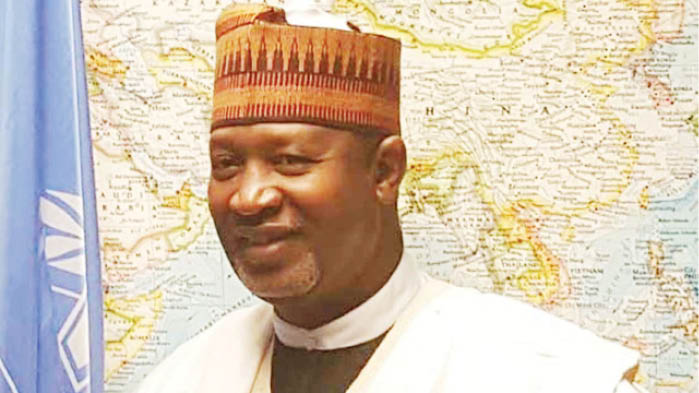Before international flights resume
The federal government last week announced the resumption of scheduled international flights into and out of the country as from Saturday, August 29, 2020, after 159 days of flight ban. The envisaged resumption will commence with four flights from yet undisclosed destinations, to Abuja and Lagos until further notice. Nigeria’s airports were closed and all […]

Minister of Aviation, Hadi Sirika.
The federal government last week announced the resumption of scheduled international flights into and out of the country as from Saturday, August 29, 2020, after 159 days of flight ban.
The envisaged resumption will commence with four flights from yet undisclosed destinations, to Abuja and Lagos until further notice.
Nigeria’s airports were closed and all scheduled flights throughout the country suspended on March 23, 2020, in compliance with restrictions on travels, courtesy of the ravages of the COVID-19 pandemic. This was just as the rest of the world also banned flights – all with the intention of mitigating the spread of the coronavirus.
The country had resumed scheduled domestic flights on July 8 2020, firstly in Lagos and Abuja and to other airports on later dates. The resumption of international flights constitutes a progression in the restoration of the aviation business in the country, which had turned out to be one of the worst hit victims of the COVID-19 pandemic, not only in Nigeria but around the world.
In announcing the resumption, Minister of Aviation Hadi Sirika clarified that the development was justified as no in-flight infection had been recorded with the resumption of domestic flights, which indicated that flying can be carried out with reasonable guarantee of safely. He however cautioned that the resumption of international flights shall be guided by the full complement of existing protocols for the domestic aspect, while additional ones as prescribed by the global authorities would also be incorporated.
The additional protocols are those contained in the various advisories by the World Health Organisation (WHO), International Civil Aviation Organisation (ICAO) and International Air Transport Association (IATA), to mention a few.
The core obligation by countries is that they conduct the relevant risk-benefit analysis, in respect of each incoming passenger as well as flight, to ensure that the already established gains from the global efforts in containing the virus, are not compromised in their facilities.
In the context of the foregoing, some of the protocols advised by the global aviation stakeholders and adopted by the Nigerian government with the intention of protecting the various categories of airport users such as crews, passengers and security personnel, include the obligation of respective embassies to ensure the compliance of their nationals with whatever travel protocols as may be implicated.
In the first place, Nigeria wants every returning passenger, either evacuated on emergency basis or otherwise to undergo a mandatory COVID-19 test at the point of embarkation, and pay in advance for another test immediately on arrival in Nigeria, before proceeding for a period of optional self-quarantine for at least eight days, being the incubation time for the coronavirus to manifest if the passenger is actually infected.
In addition, the federal government has said that a fine of $3,500 would be imposed on any airline that boards a COVID-19 patient.
A source of worry, though, is the recent announcement by the Nigerian Civil Aviation Authority (NCAA) that there is no infrastructure to conduct COVID-19 tests on passengers.
With the outlined protocols in place, the country seems to be ready for the resumption of international air travel.
However, there is no gainsaying the fact that as the country’s air space opens up for international travel, the government needs to appraise the capacity of domestic operators of international flights to cope with the crushing effects of COVID-19 on their operational status.
The federal government has already said that international passengers who evade tests in Nigeria will be put on the travel watch list of the government.
Just before the approval of resumption of international flights, the country’s aviation sector was rocked by labour unrest as at least two of the most enterprising operators cited COVID-19 induced, encroaching insolvency to lay-off dozens of pilots and other crew.
Meanwhile, it is feared that even without announcing it, some other operators facing the same situation may also trim their workforce. The ripples from that development are yet to settle down, thereby implying that until the issue is resolved, Nigerian operators of international flights may return to business in a handicapped condition.
